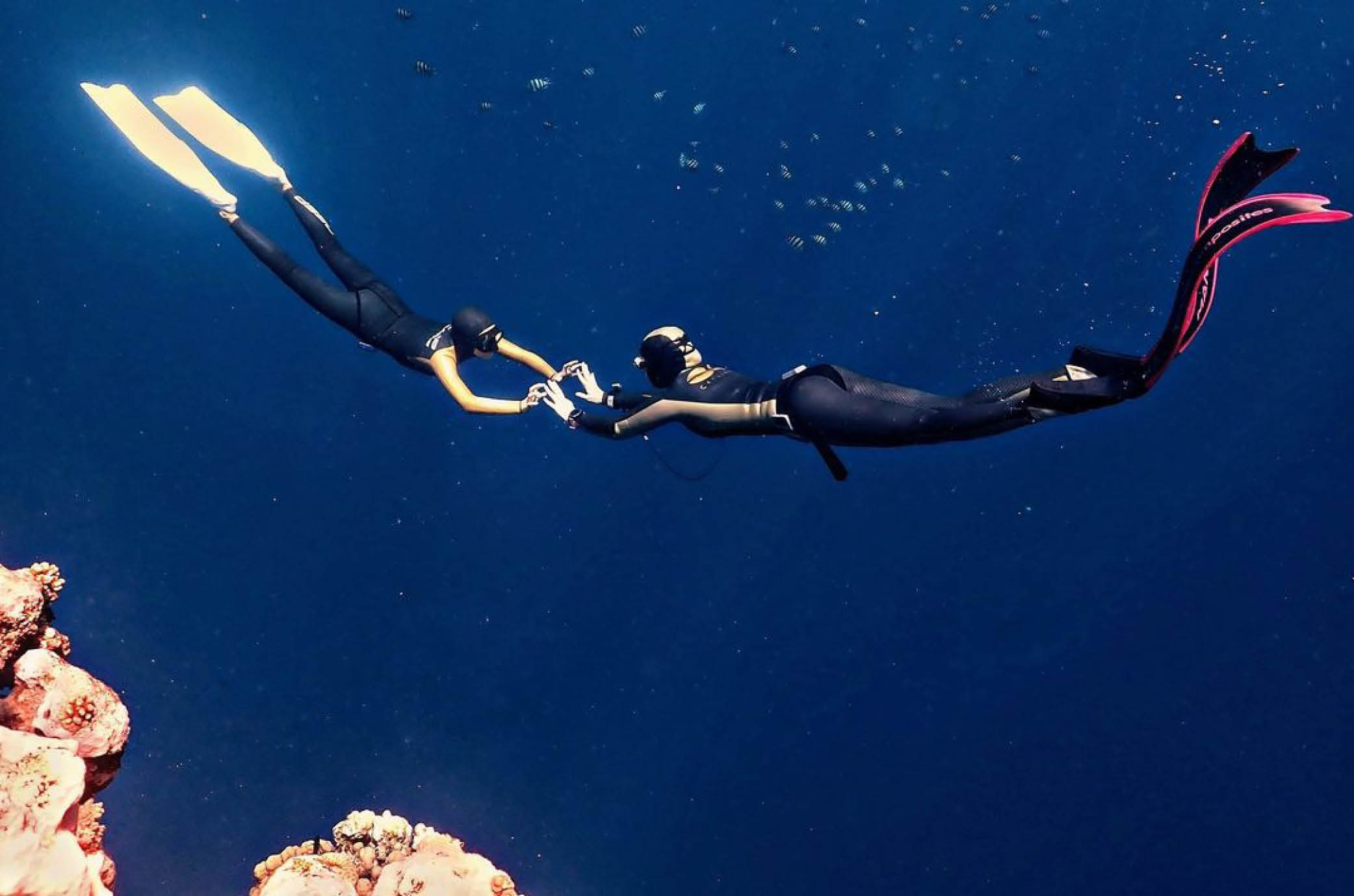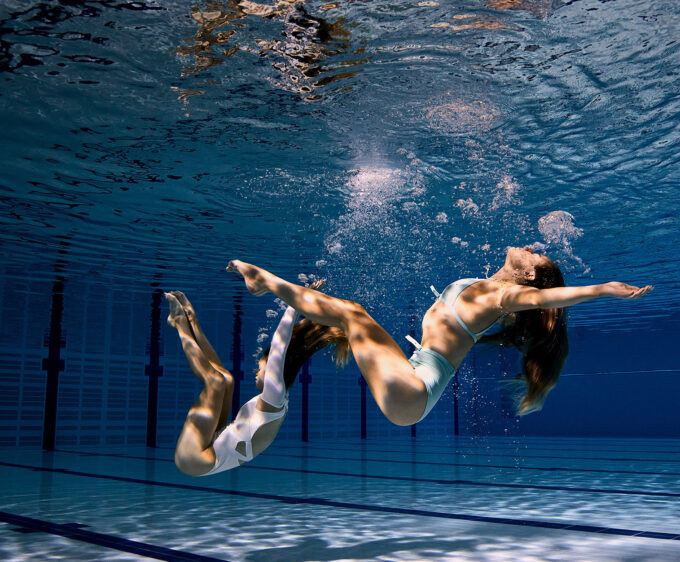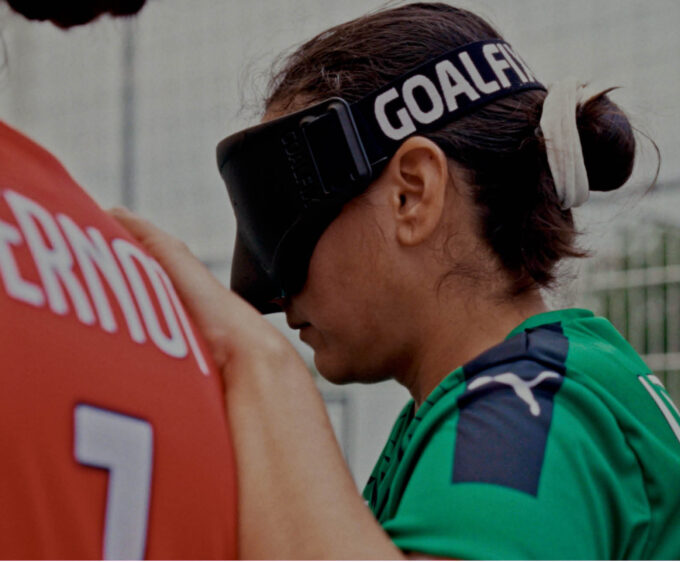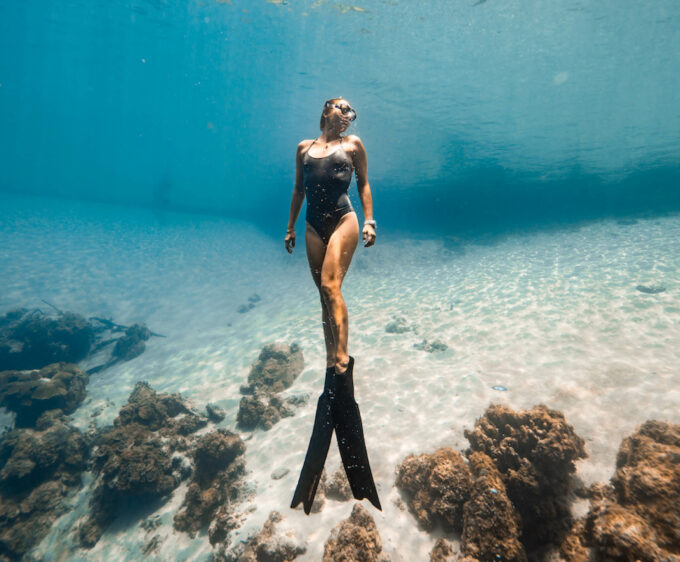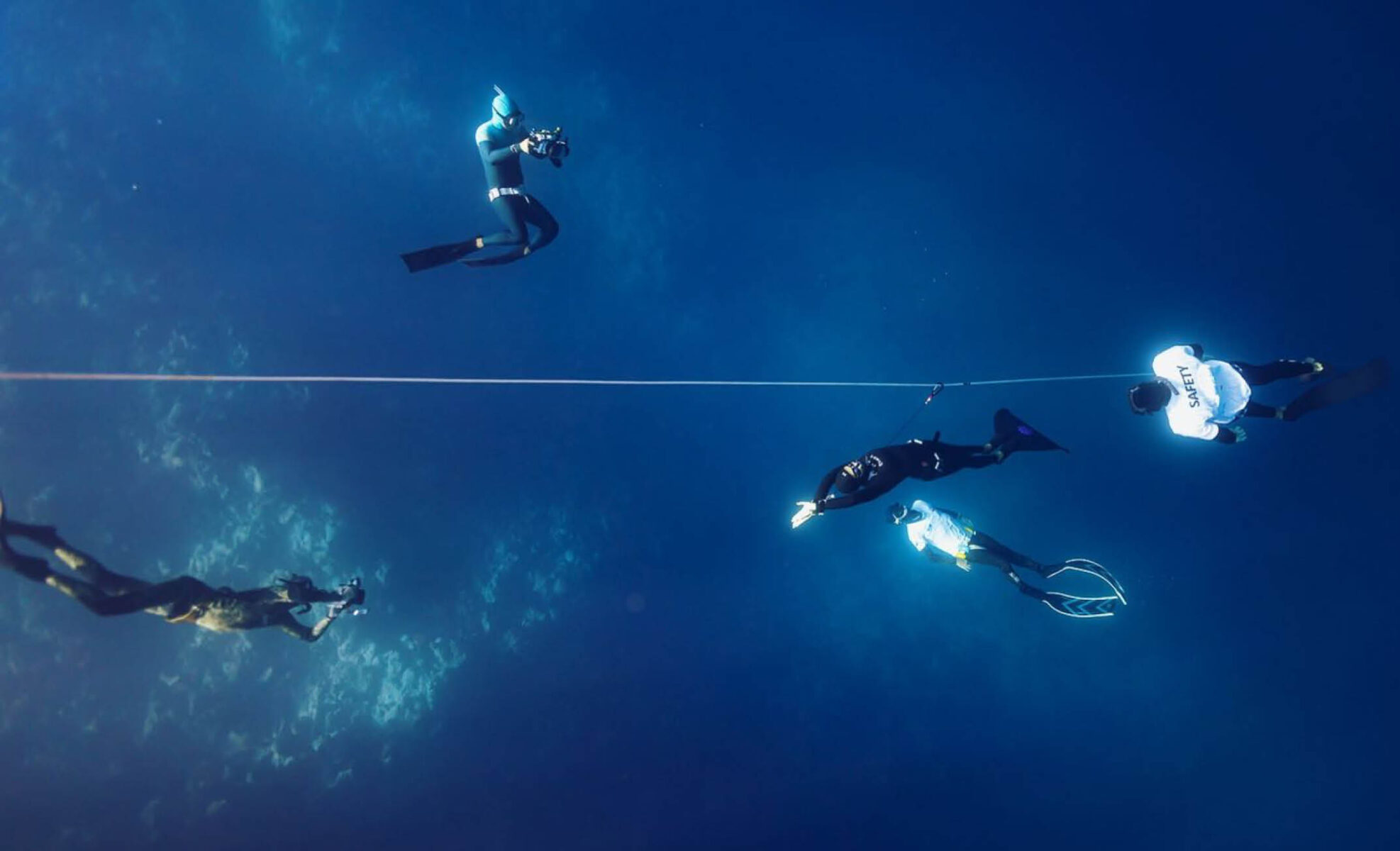
Sisters of the Tide
Freediving is a sport fraught with danger, yet it fosters a community that transcends boundaries. British freediver Ruth Osborn and Kuwait’s Zainab Alwazzan reveal the sisterhood forged in the depths.
By Ellë Bolland
Picture this: you’re scuba diving among the rich aqua hues of the ocean in one of the world’s most challenging diving sites, the UNESCO World Heritage Site, the Great Blue Hole. Complete with a tank on your back, snorkel mask, fins, a buoyancy control device, regulator, and other pieces of heavy kit, you catch a glimpse of a team of sea-dwelling creatures. At 40m deep, they swim freely past you, one by one, with their large tails and a sheer sense of calm as they overtake you into the depths beyond. These mythical creatures weave through the currents like whispers of ancient lore, dancing with the waves, unbound by breath or gravity.
Once you’re on shore again, you learn these weren’t mermaids but, in fact, the women of the Korean diving team. They are human, like you – they’re depth freedivers! You learn that their training entails several components on and offshore, from practising safety and buddy protocols in the water, to equalisation techniques (where you learn to equalise pressure in your ears and sinuses). Sold by the challenge, you sign up for your first course at the nearby training centre, and within a matter of months, you’ve completed the three core courses to get your licence. The rest is history.
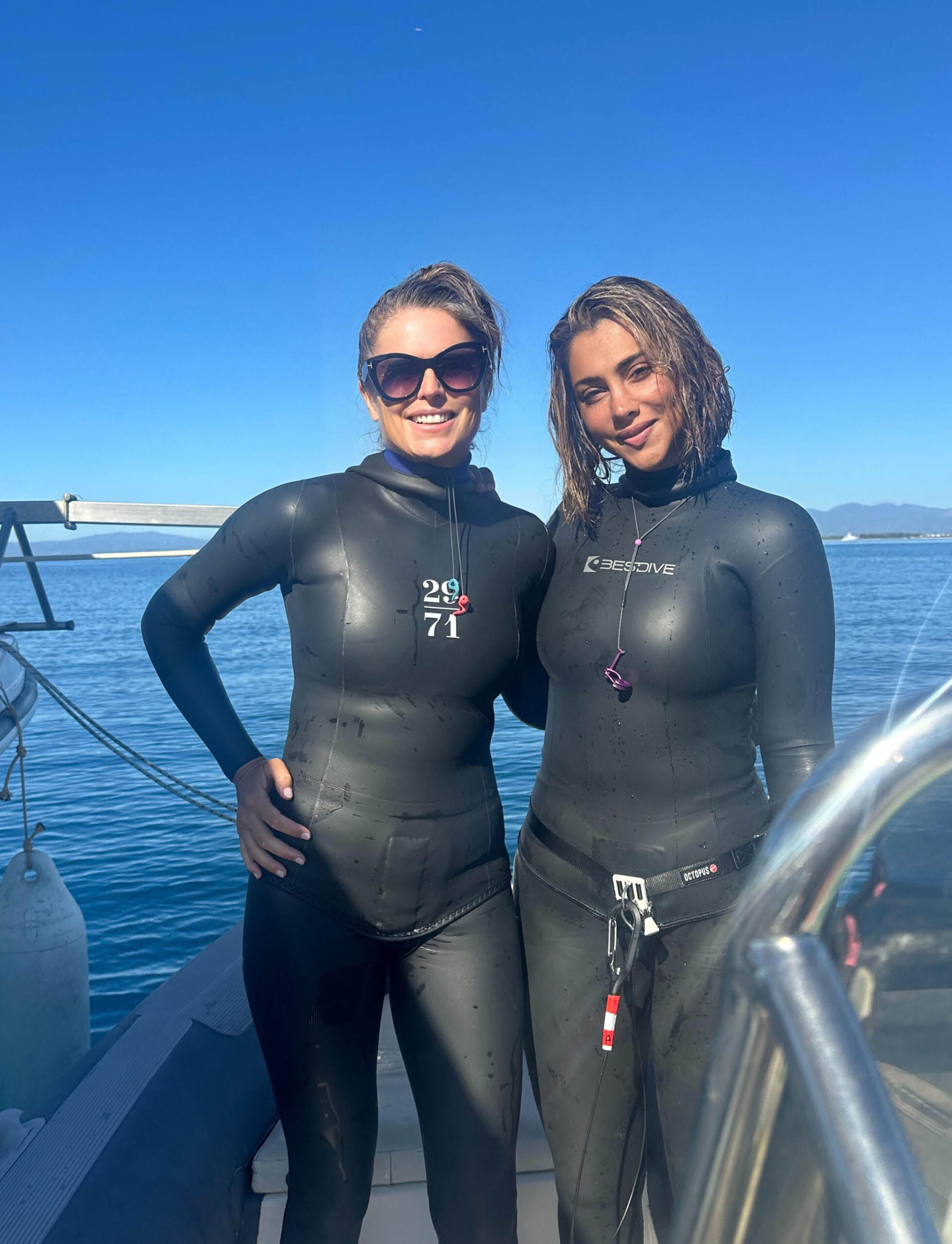
This is the story of Zainab Alwazzan, Kuwait’s first female freediver and national record holder in all freediving depth disciplines. I’m introduced to Zainab by our mutual friend and fellow freediving thalassophile, one of the UK’s all time deepest women and UK national record holder, Ruth Osborn. Speaking to me from Kalamata, Greece, the pair are here for a month’s training ahead of the World Championships. “It’s amazing, you form these bonds that go beyond borders in freediving. Ruth travelled here from Ibiza while I flew from Kuwait. We’re spending a month here training together ahead of the 2024 CMAS Depth Freediving World Championships, here in Kalamata.”
Despite hailing from two different corners of the globe, the pair met in Dahab, Egypt, for the Open Championships last November, where their connection was unexpected yet effortless. They instantly bonded over love of diving deep, pushing boundaries and pink. “Freediving brings together some really interesting, aware, connected, kind, and beautiful people. Whilst we compete under the flags of our countries, my feeling is that this is not as important as the community of interest that the passion for freediving has created,” Ruth shares, reflecting on the shared experiences that transcend national boundaries.
Both women had a love for aquatic sports prior to freediving. Zainab, a scuba diving instructor, while Ruth, a swimmer and surfer who is also a highly respected teacher and coach of swimming, among many other sports throughout her life. What is it that hooked them more than anything they’d experienced before?
Ruth, a true yogi who has practised pranayama and meditation for many years, describes the incomparable feeling freediving provides: “For me, freediving is meditation in its purest form, a totally unique form of meditation, one I could never reach in the same way through yoga. There’s something so beautiful about being in that hyper-aware and yet deeply relaxed state underwater, with everything muffled and blurred. There’s this deep sense of peace which contrasts to what you’ll have from being on land. I leave the world and its noise behind.” Zainab echoes her thoughts, emphasising the need to let go of discomfort and fully immerse yourself in the experience. “It’s like you’re being hugged by the ocean! It quite literally is when you experience freefall.”
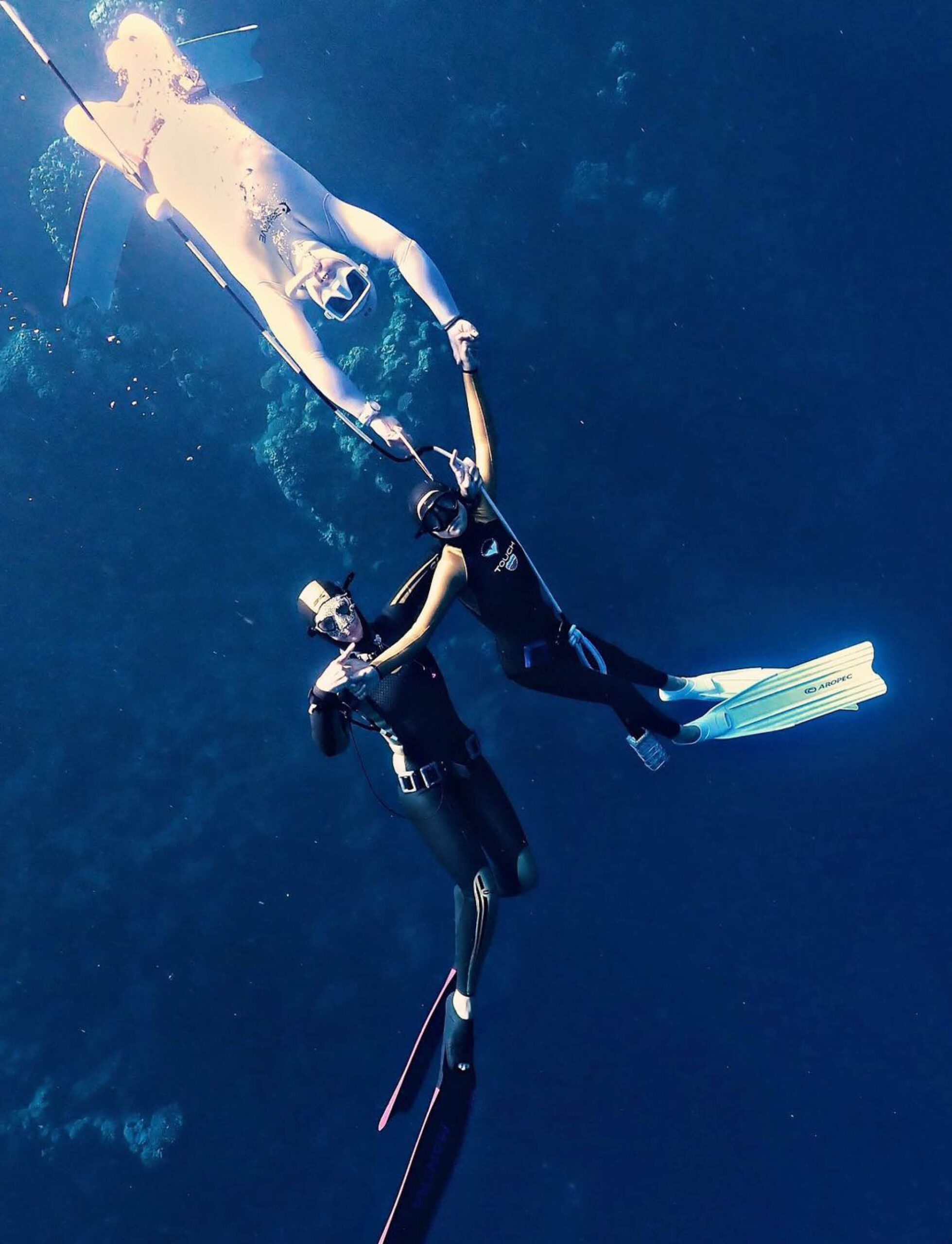
Freefall is the sensation of descending deeper into the ocean without effort, as if the sea itself is pulling you into its depths. “You’re buoyant at the surface, and as you descend you become less and less buoyant, until eventually, you pass neutral buoyancy becoming negatively buoyant, and then more and more negatively buoyant, meaning you get faster as you drop deeper into the sea,” Ruth tells me, with a big smile. To me, sinking into dark underwater corridors sounds terrifying. What happens if you panic when you’re that far down, and the pull of gravity resists your efforts to get back up again? What if you lose the physical capacity to get yourself back up? Both women insist that it’s about quieting the mind, and the body will follow. It’s about relaxation, focus, and mental and physical preparedness – being aware of how one feels in the body and mind and listening to that. Zainab elaborates on the advantages of freediving for women, saying, “I want to invite women to try our sport because there are so many transferable aspects of it; for example, it’s an opportunity for you to develop a really deep trust in yourself.”
Ruth continues,“Obviously it can be dangerous if people aren’t educated properly, just like any other sport! But with education and following safety protocols it’s very safe and there’s so much beauty to be experienced with it.” On the topic of safety, I learn that many divers choose to buddy up and support one another during their safety dives and training. “It’s why our sport encourages some of the richest friendships in the world!” Zainab says enthusiastically as she looks at Ruth.
Imagine you’re seconds away from diving and your safety diver yells at you. “Quick! Quick!” and as you turn around, a gigantic manta ray appears and continues to circle you for an hour with sheer intrigue. Ruth tells me this was one of her most enlightening experiences, the magic of being in the sea. “When you’re training or competing depth, nothing really exists outside of the line we are on, but sometimes in training it’s sheer luck if you encounter the wildlife, that’s when you experience nature in its rawest form and it’s magical. It’s life affirming. Another one of my favourite experiences has to be in Cabo San Lucas, Baja California Sur, Mexico. The first time I dived there, I heard whale song and was so lucky to dive with migrating humpback whales. You just don’t see that stuff from the shore!” Zainab tells me she had a similar experience in Cebu, the Philippines, where she brushed shoulders with a shoal of whale sharks. “Their eyes are on the sides of their heads, so they couldn’t properly see me, and one ended up coming right next to me! They’re so sweet, just like big babies.”
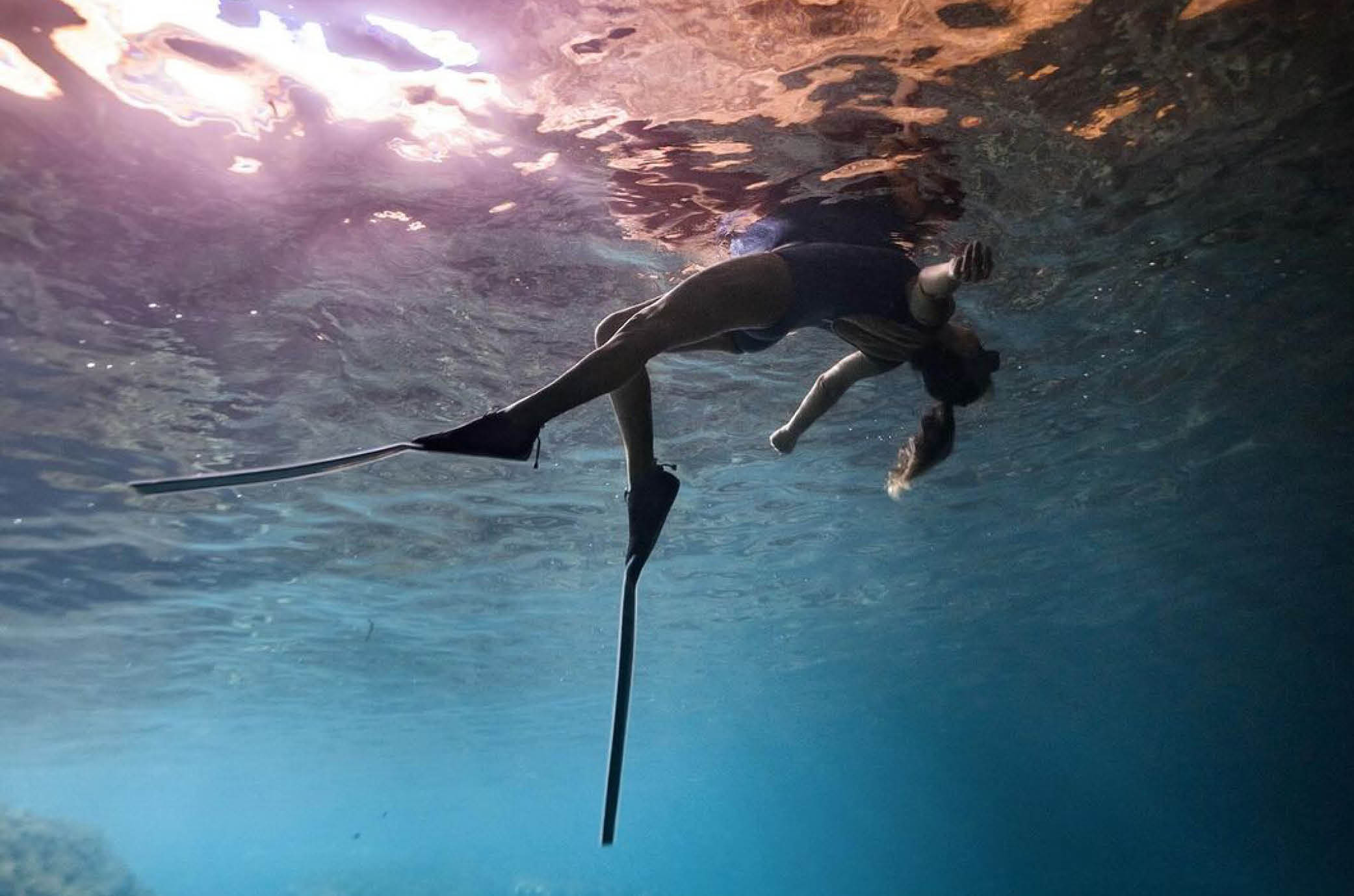
Educating
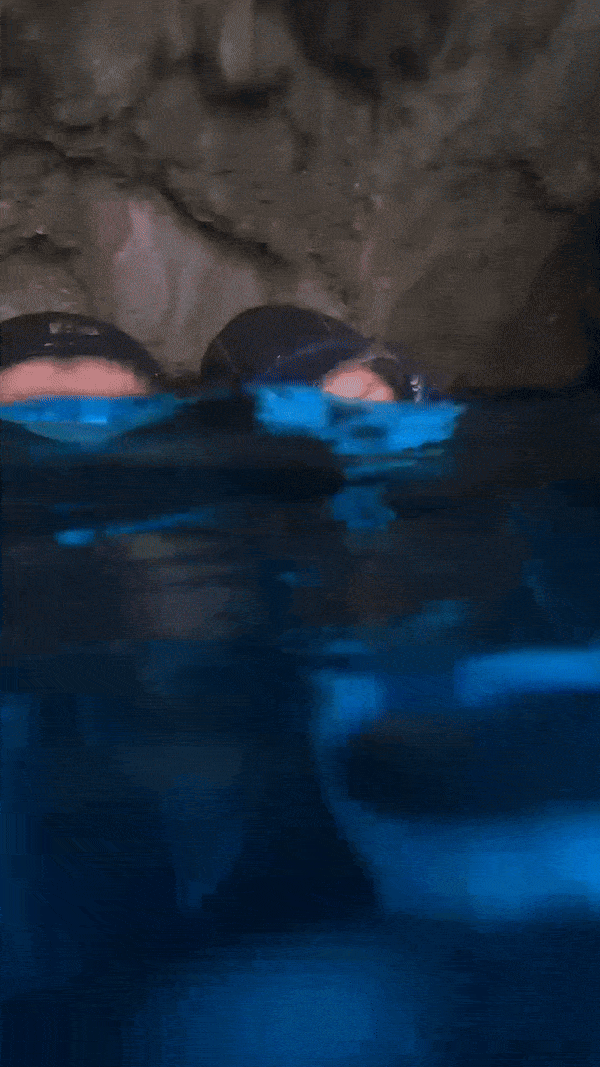
As we talk about their favourite interactions with marine life, I learn there’s another interesting synergy between Ruth and Zainab: their shared value in sustainability. “If more people experienced the world in the way we have, I think they would care for it more and change the decisions they make,” Ruth points out. While many have experienced Ibiza for its colourful nightlife, Ruth has seen it in a different light, noticing that underwater visibility is considerably worse in the high season, also pushing marine life out of their usual habitats. Zainab shares a similar point, highlighting the importance of educating people on how to protect the ecosystem.
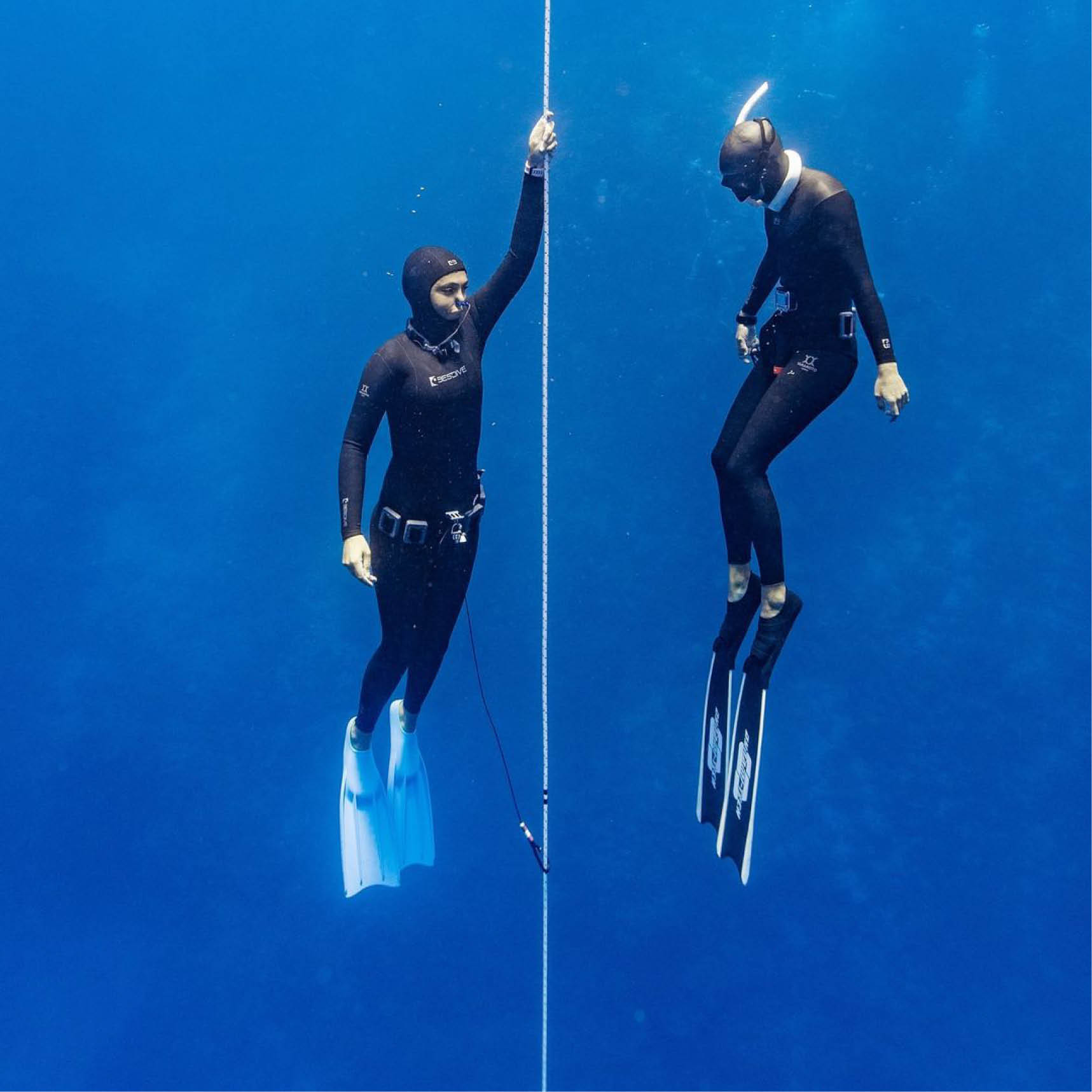
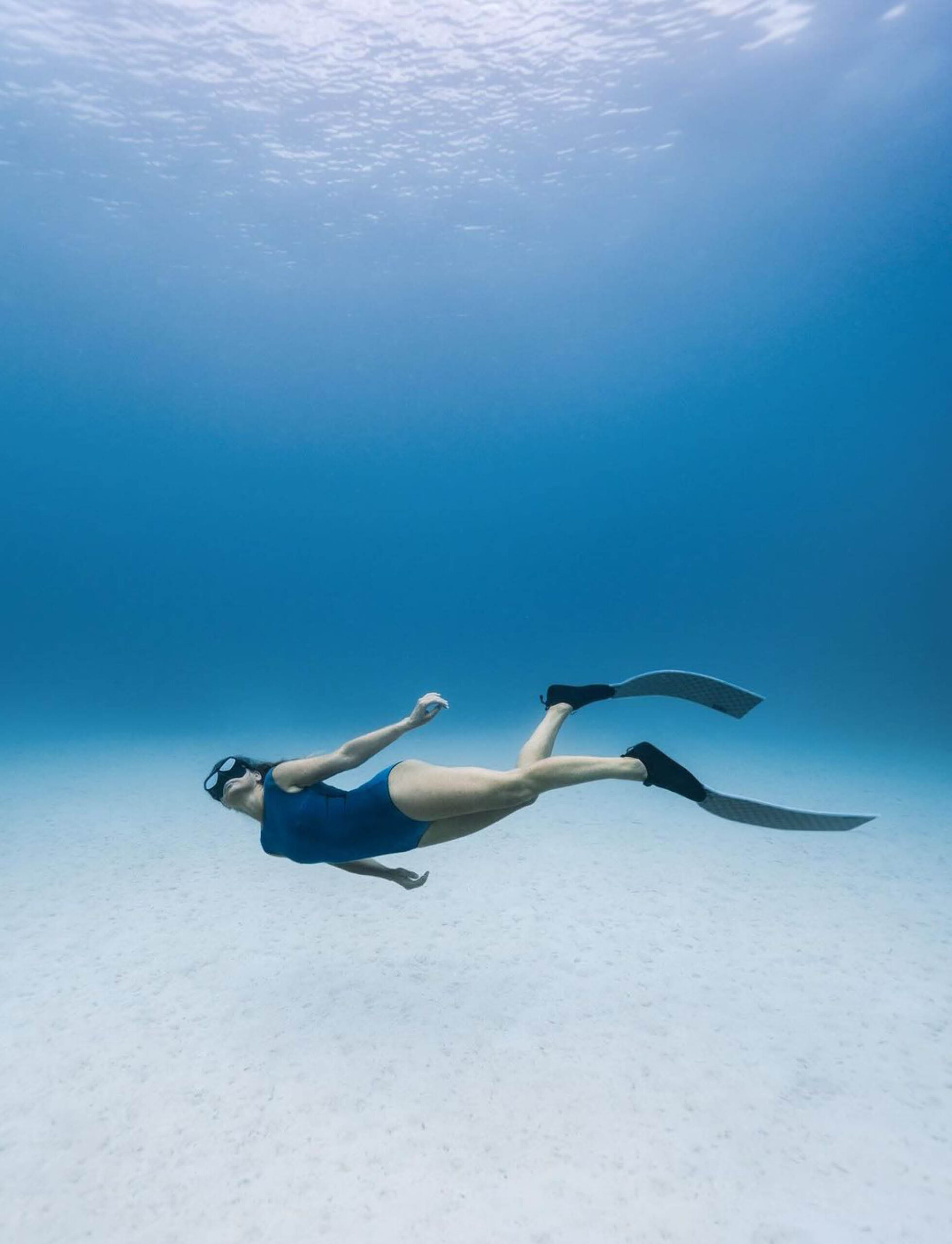
“In Kuwait, each of the diving centres (there are fifty of them) hosts a weekly cleaning campaign, encouraging the younger generation to not only clean the beaches but also to teach them how and why we need to preserve natural ecosystems. For example, something as simple as not feeding the fish because it will encourage the fish to move to areas they don’t usually live in. They become dependent on humans to feed them! We need to stop interfering with the natural world to keep it alive.” Both Zainab and Ruth recognise that some areas aren’t as connected to this information, and it’s up to those who do know to transfer this knowledge and take actionable steps, such as not accepting a plastic bag at the supermarket, minimising the use of plastics, or even making lifestyle swaps like only using natural hair and skincare products, such as coconut oil.
This brings us back to the themes of community and highlights how, despite our differences, we are all interconnected in some way. By engaging in conversations and sharing our experiences, we deepen our understanding of ourselves and the world around us. This exchange not only enriches our personal growth but also strengthens the bonds that unite us.
Zainab and Ruth’s journey into the depths of freediving exemplifies the bonds that can form through a shared sense of adventure and passion for the environment. Their friendship, forged in the cobalt currents of the sea, transcends borders and highlights the beauty of sisterhood among women in sport. As they challenge themselves to take on new depths, their connection grows stronger, showcasing the camaraderie that emerges when women come together in pursuit of a common goal.
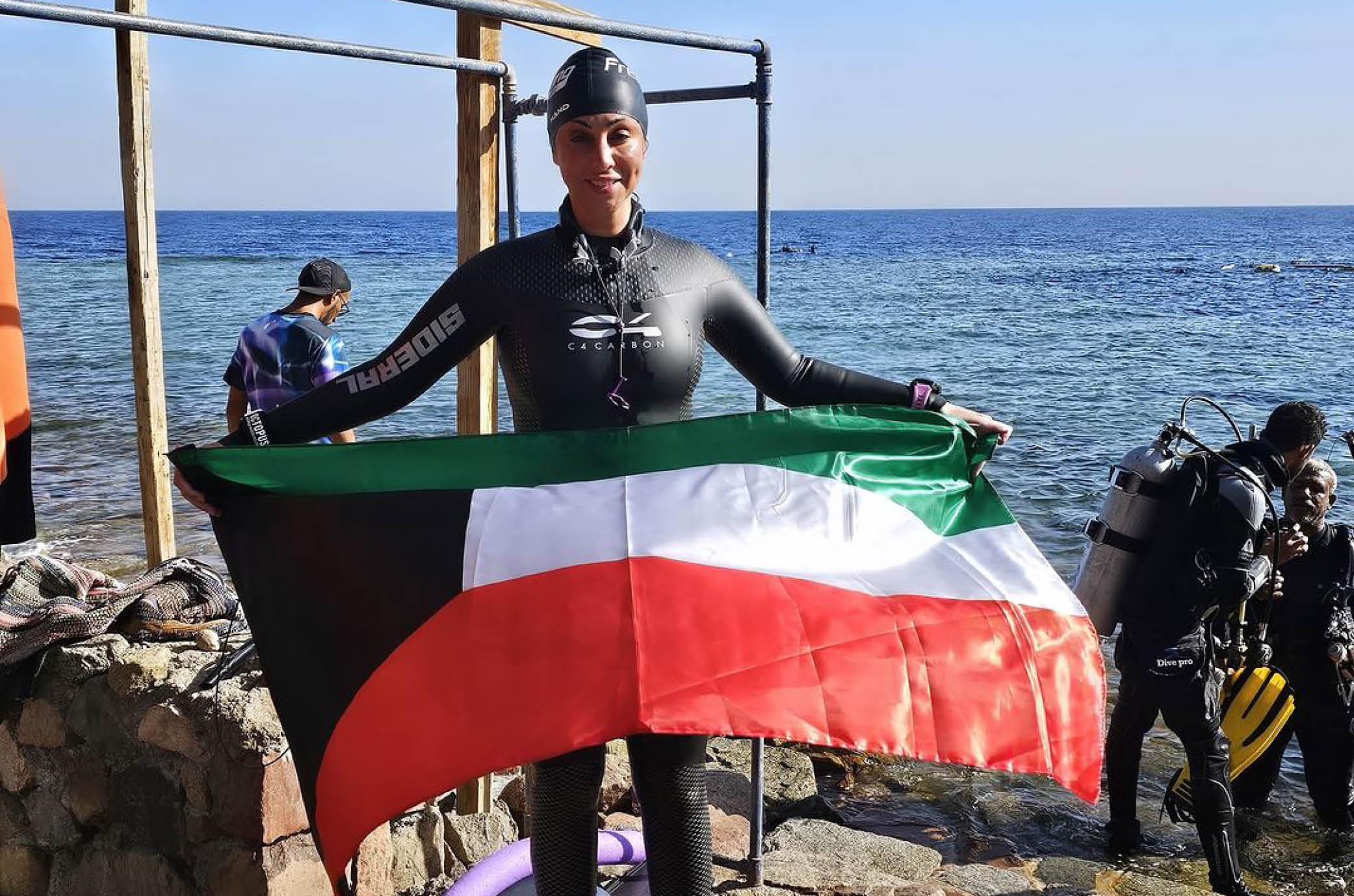
Through their story, I feel enlightened and have shifted my perspective on the sport. While there are inherent risks, there’s a profound sense of freedom that comes from mastering the connection between body and mind. We are capable of so much more when we train both in harmony. With the support of a collective united by a common goal, we can achieve far more than our mind alone may allow us. There really are elements of the sport I think we can all learn from.
